Archive
2020
KubaParis
Foyer
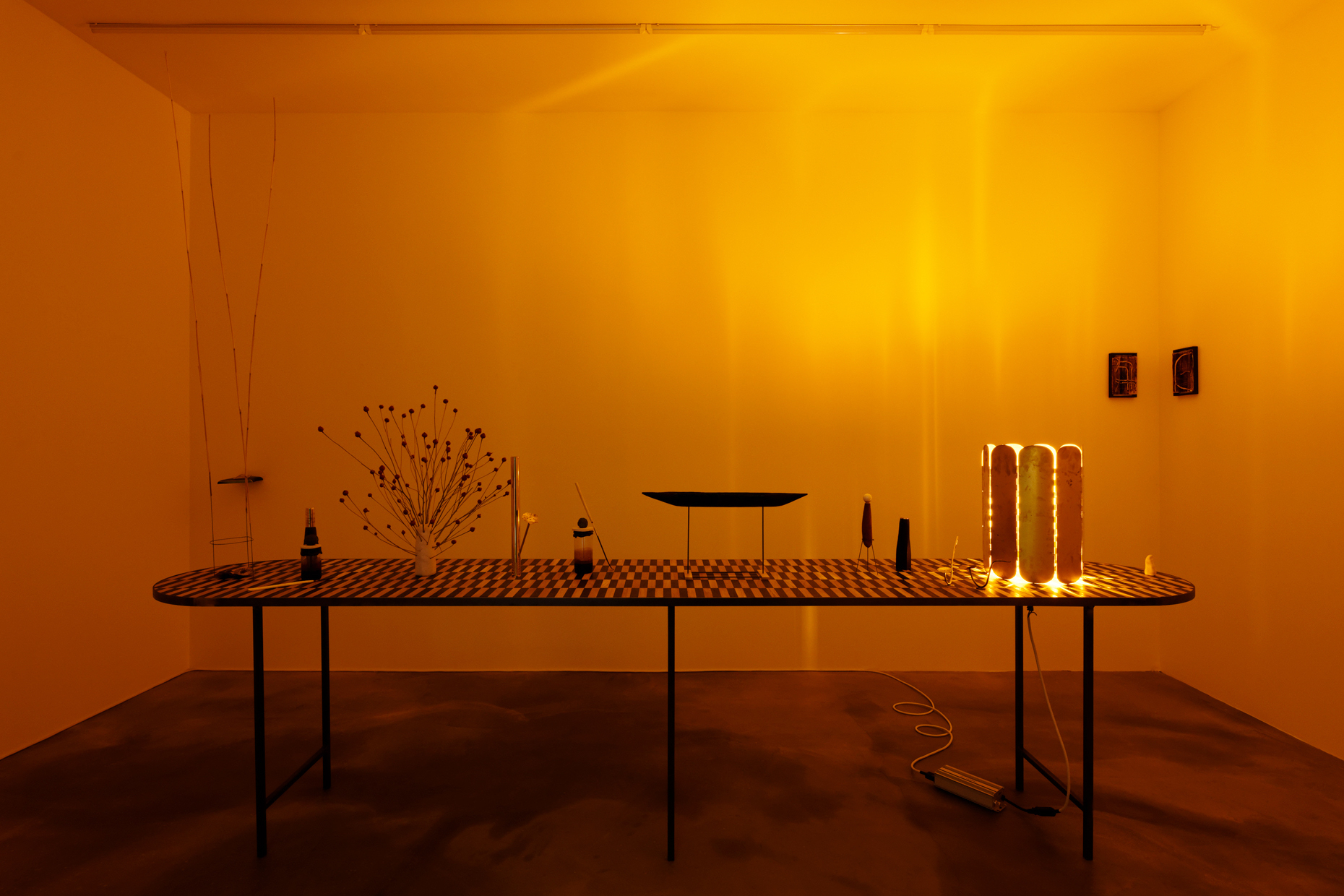
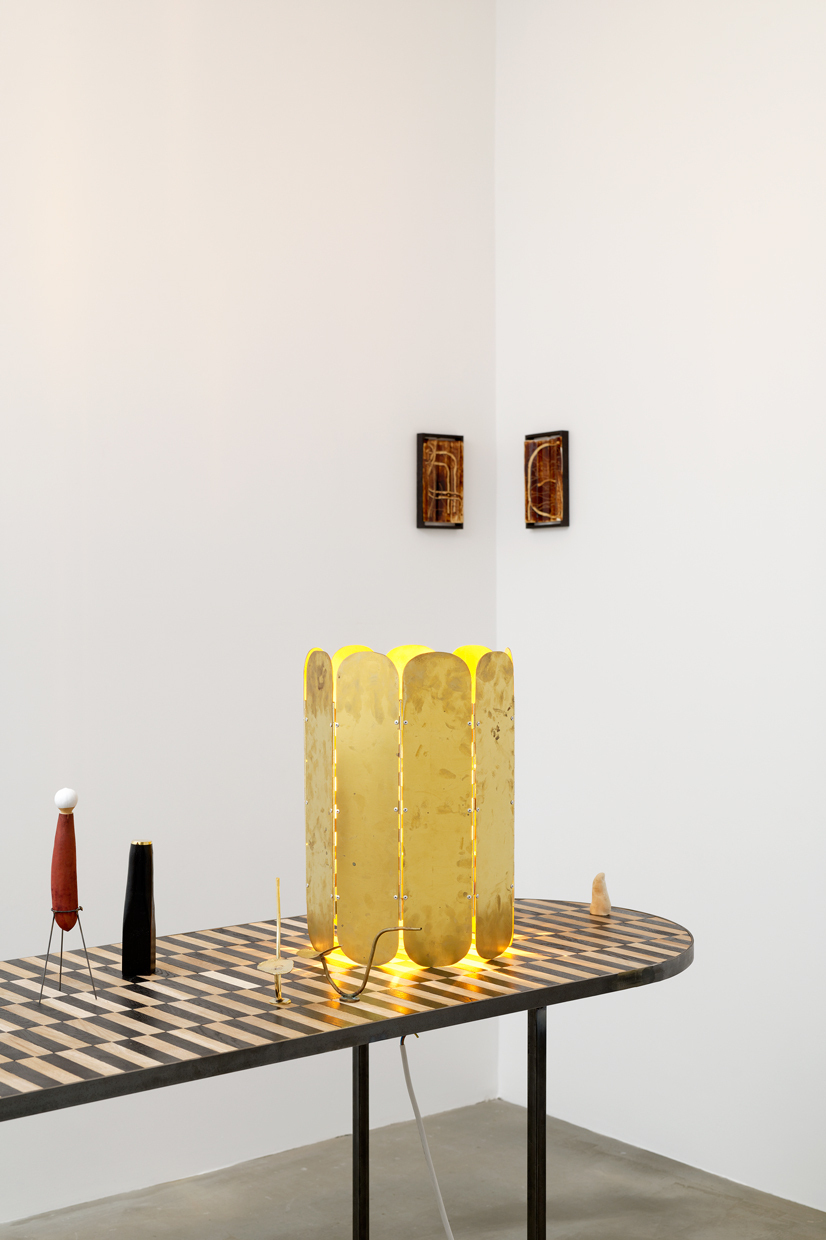
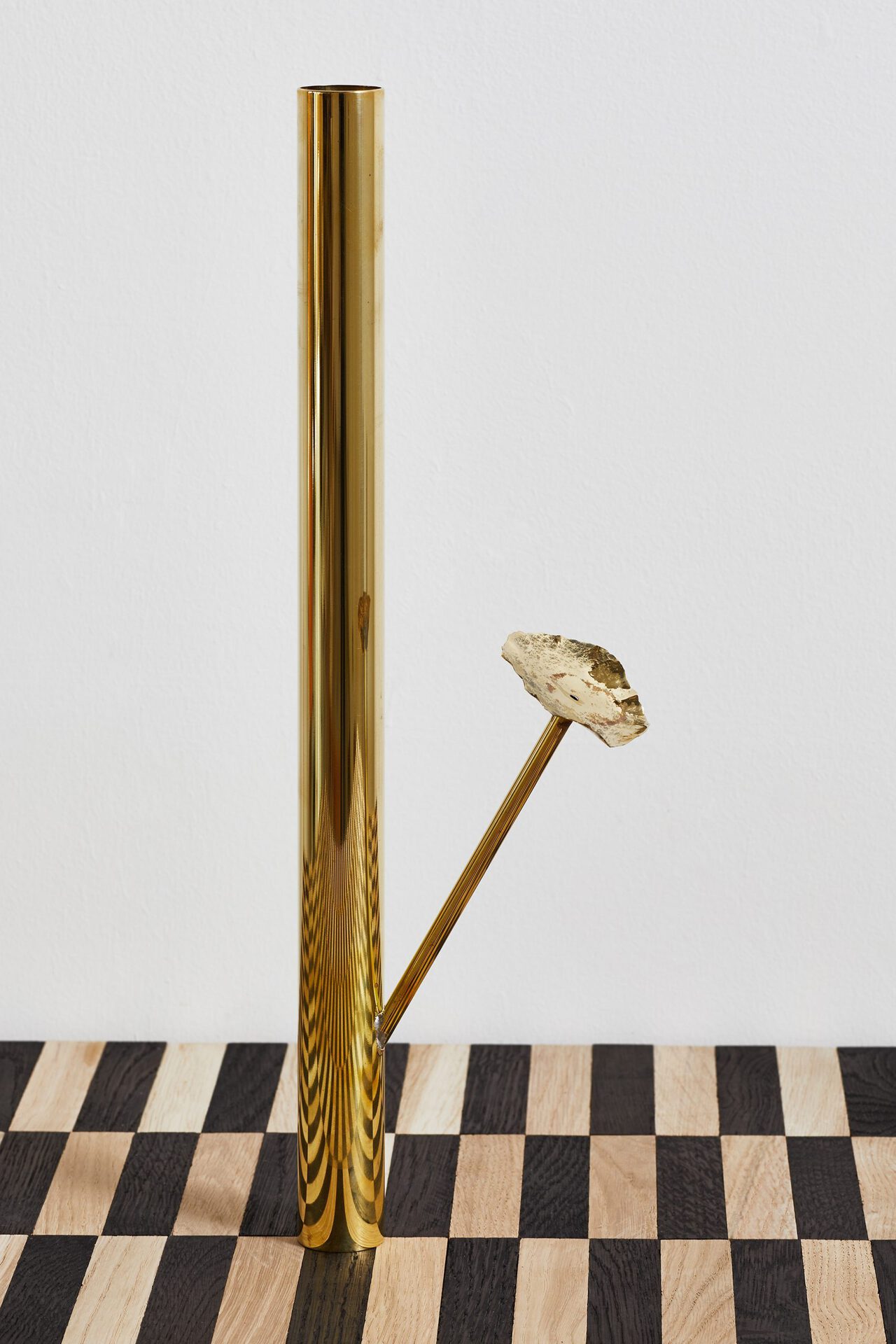
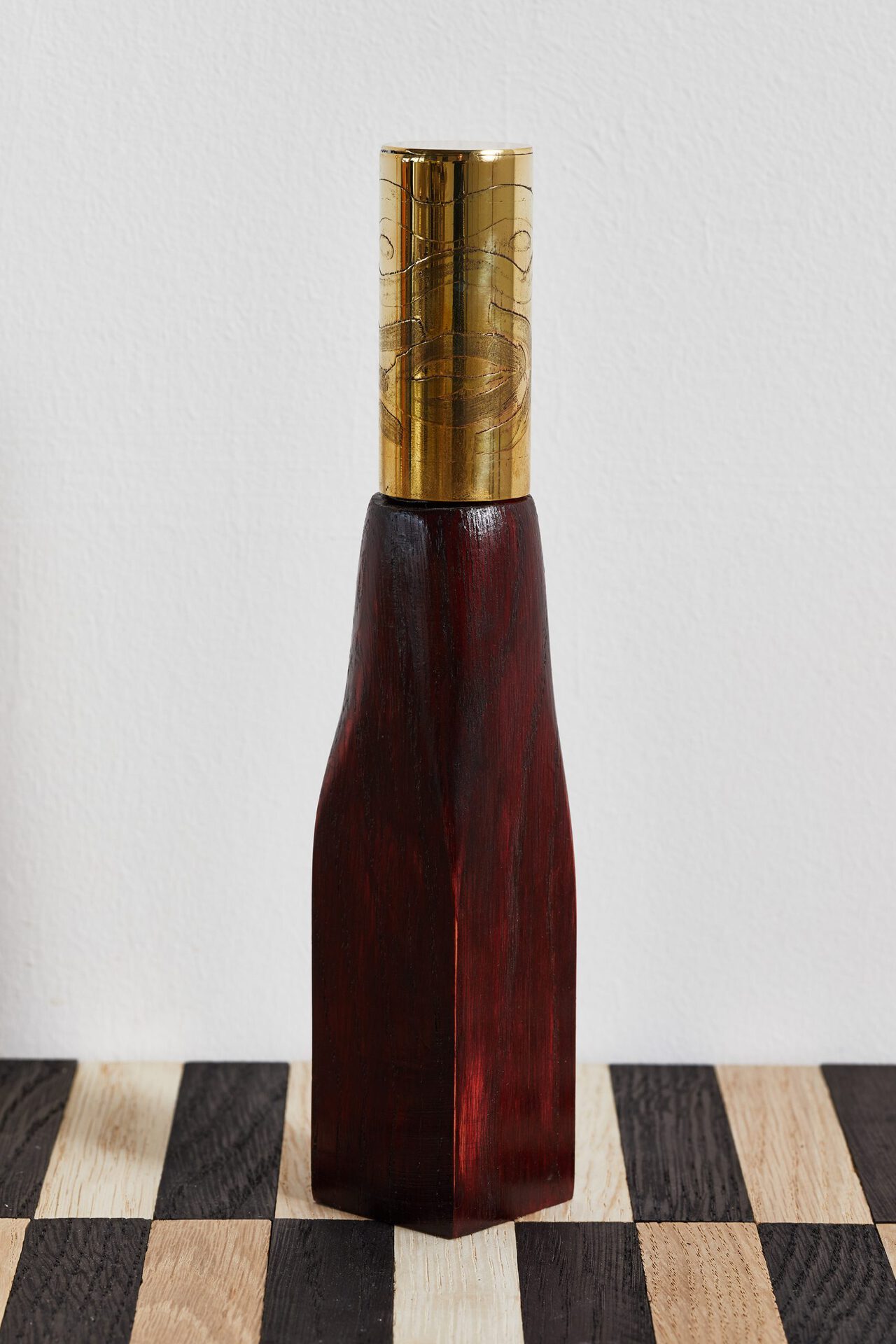
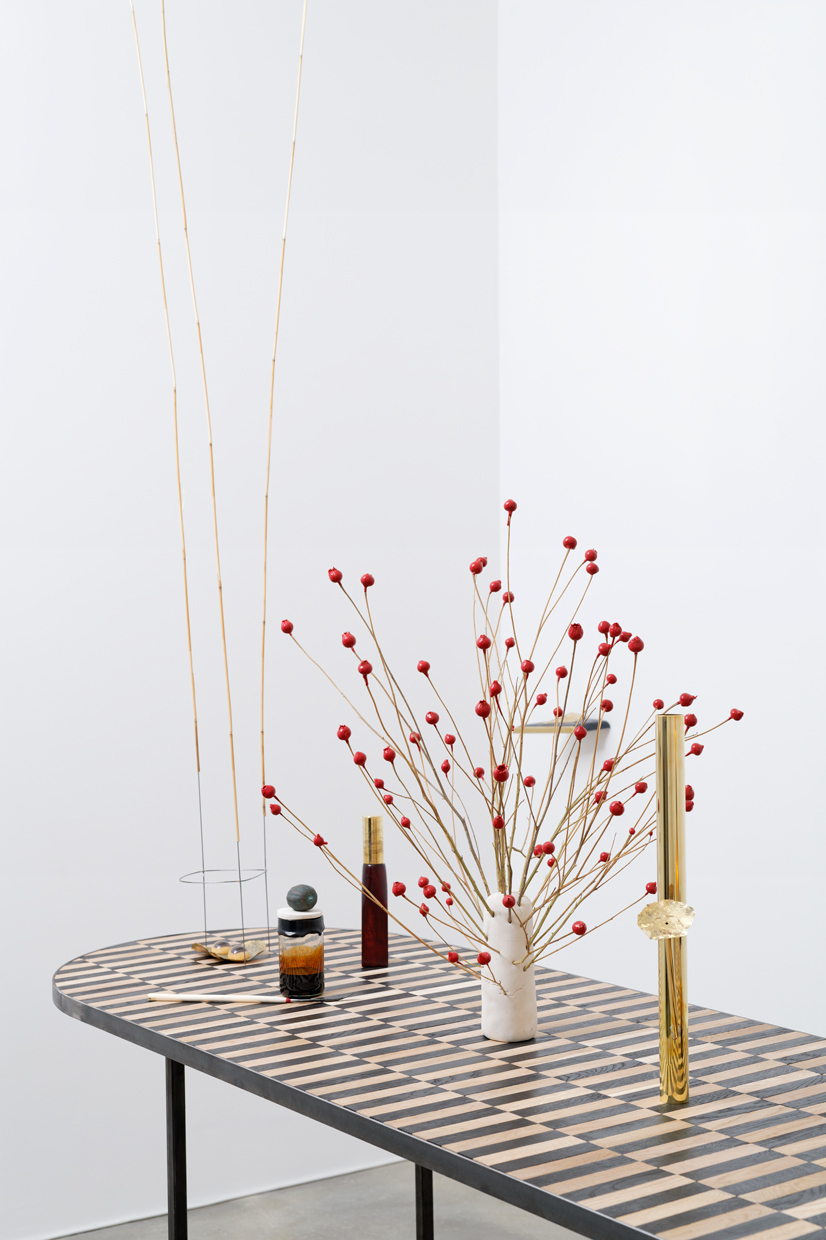
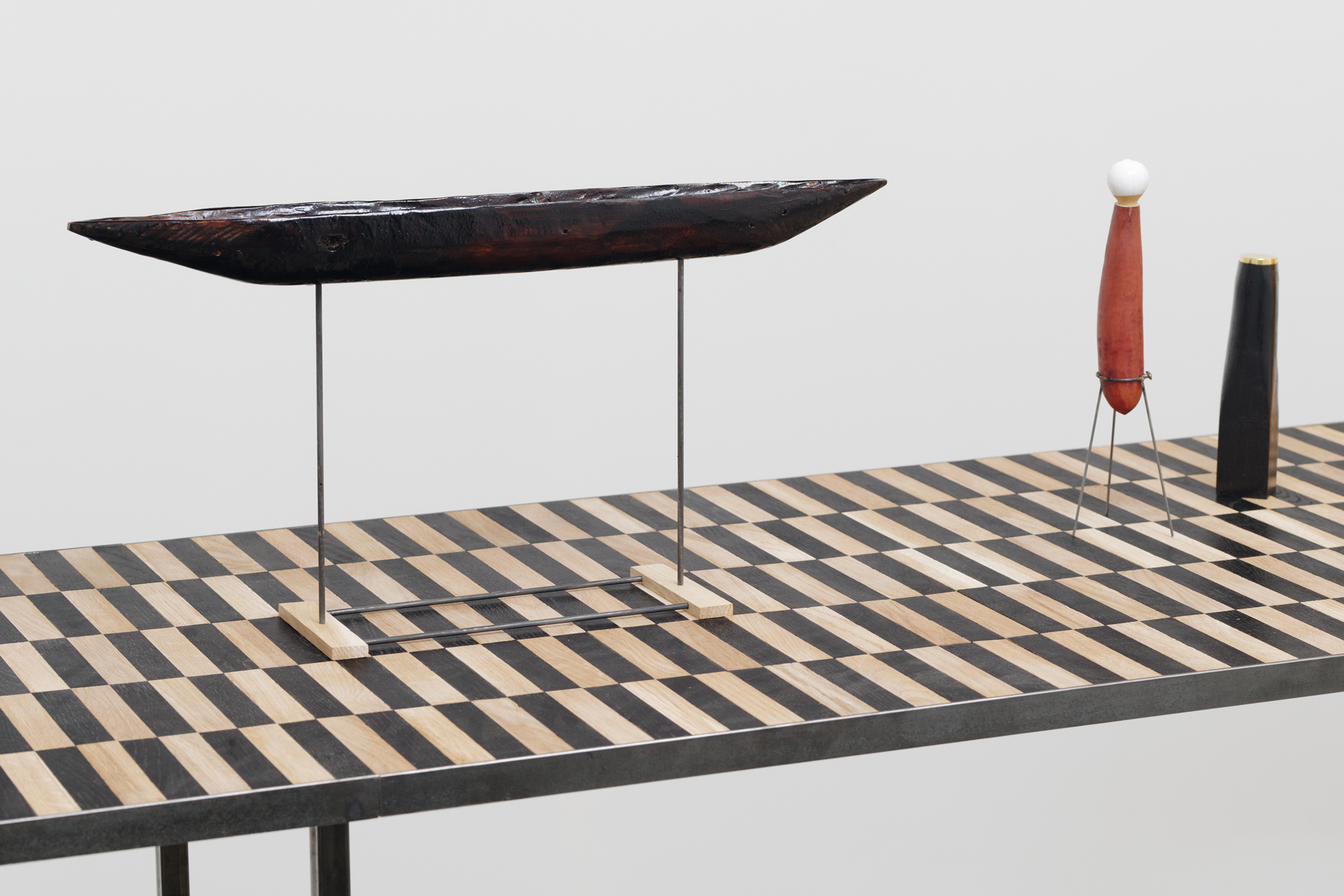
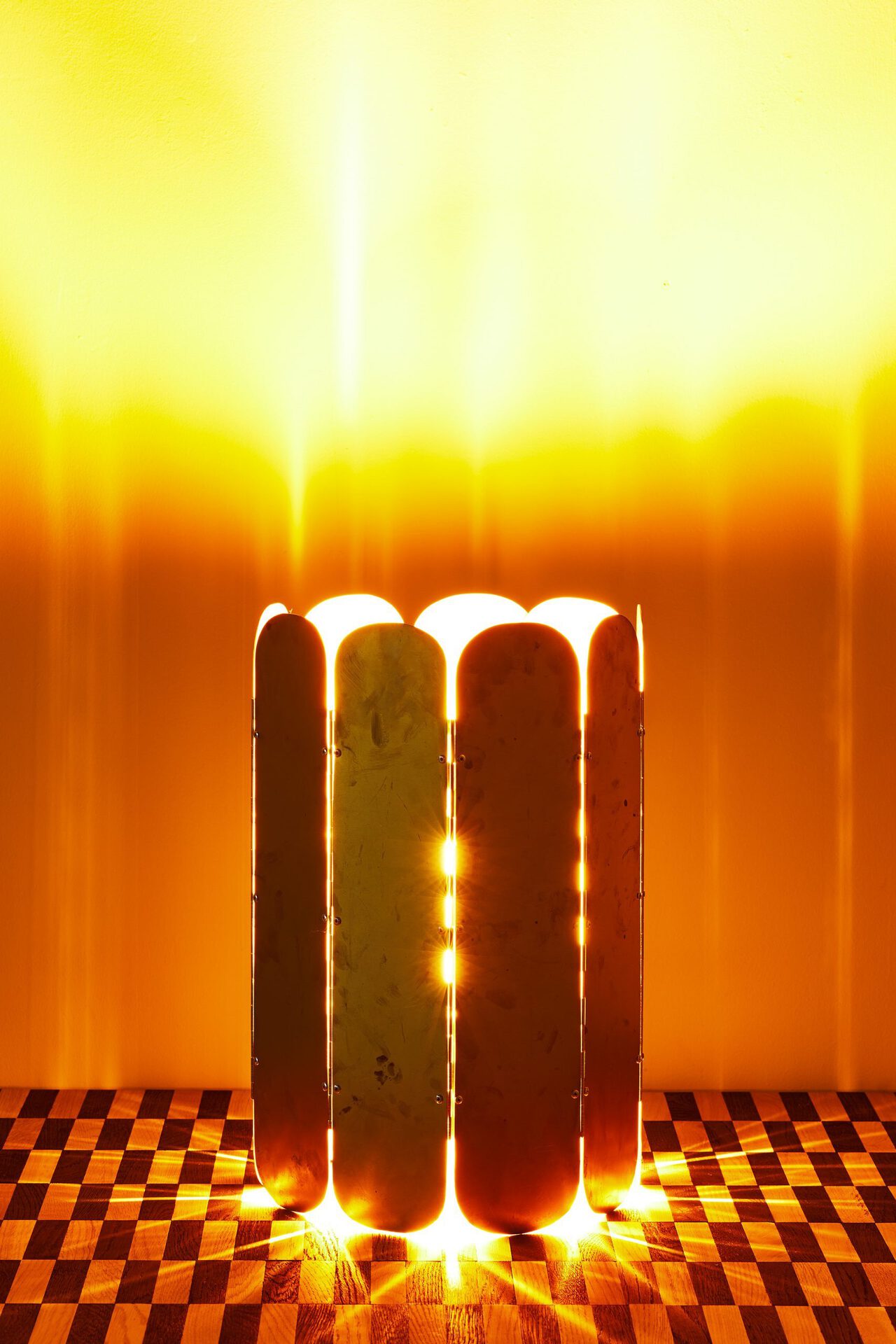
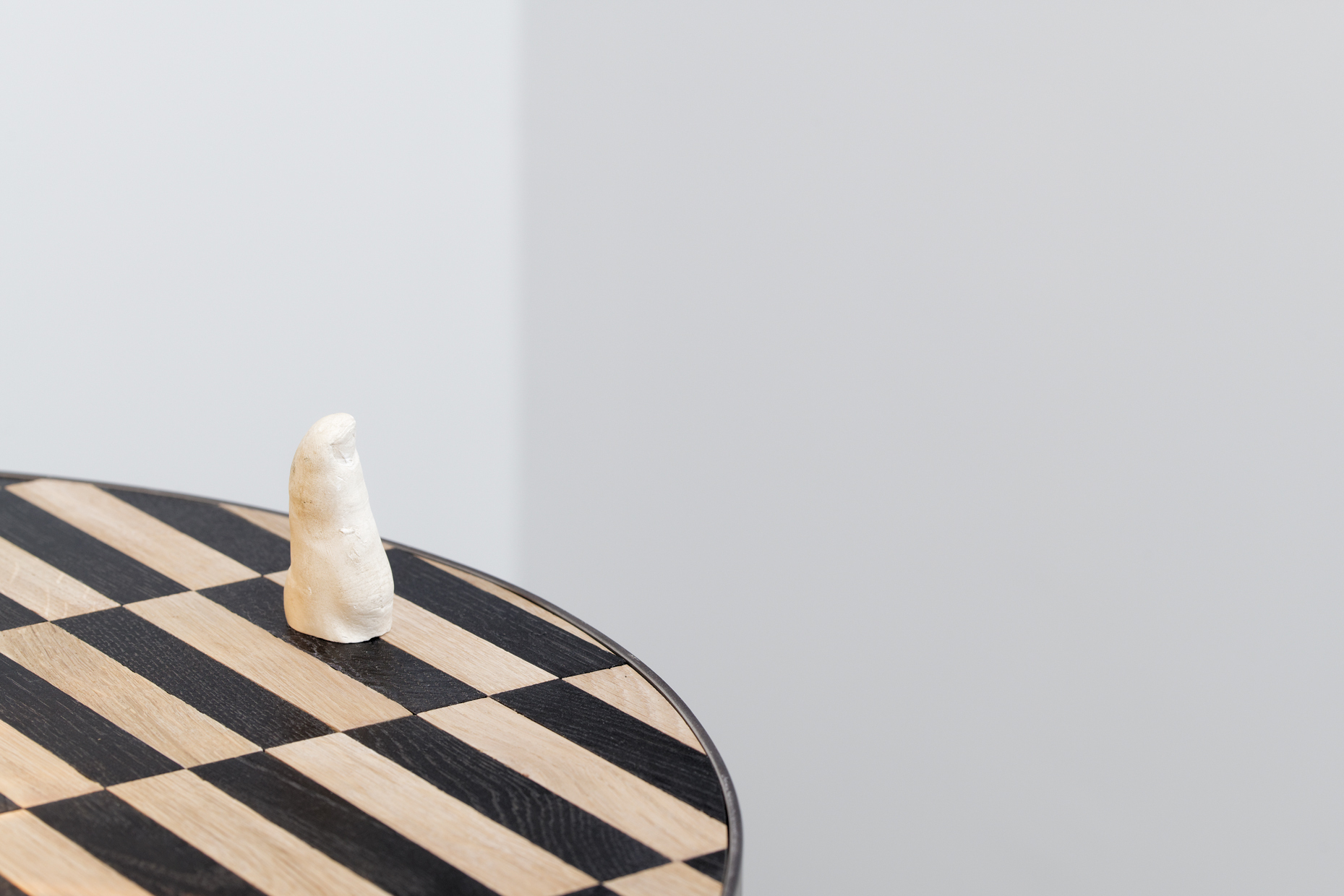
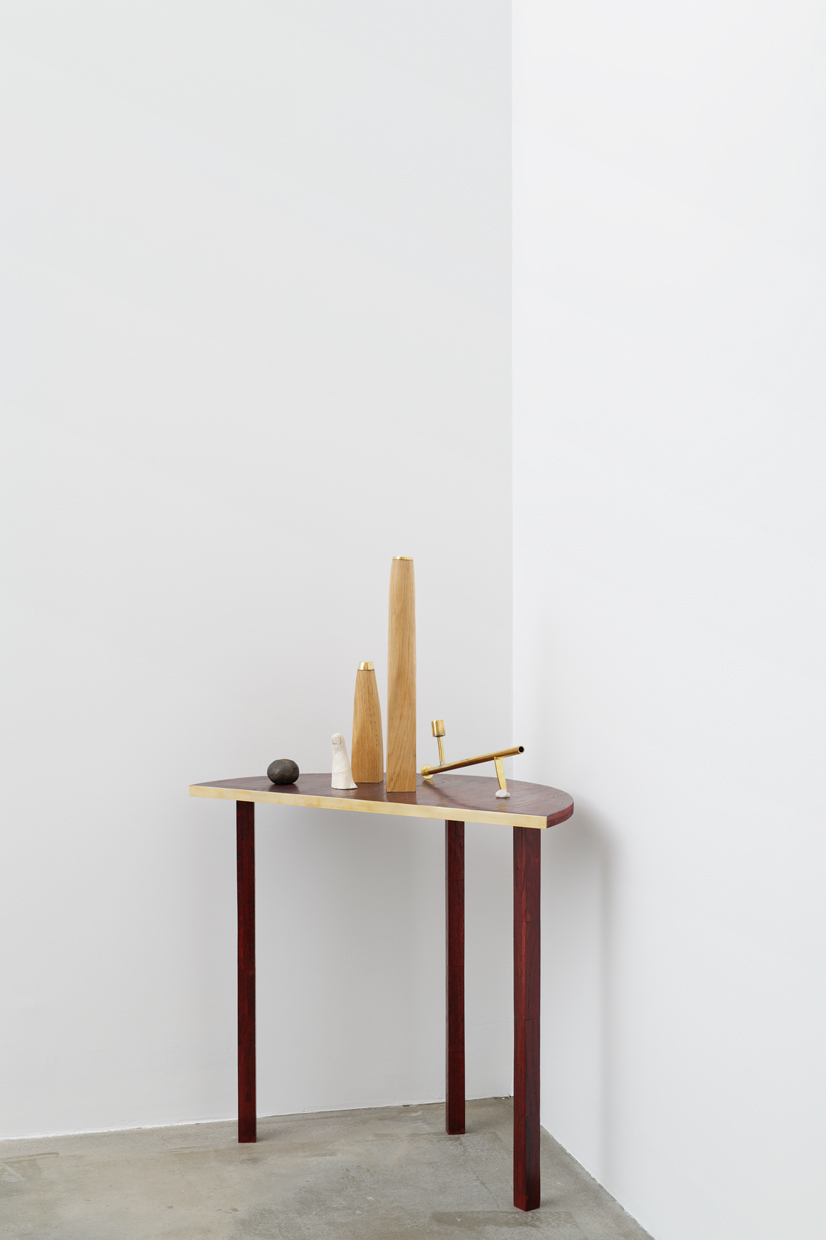
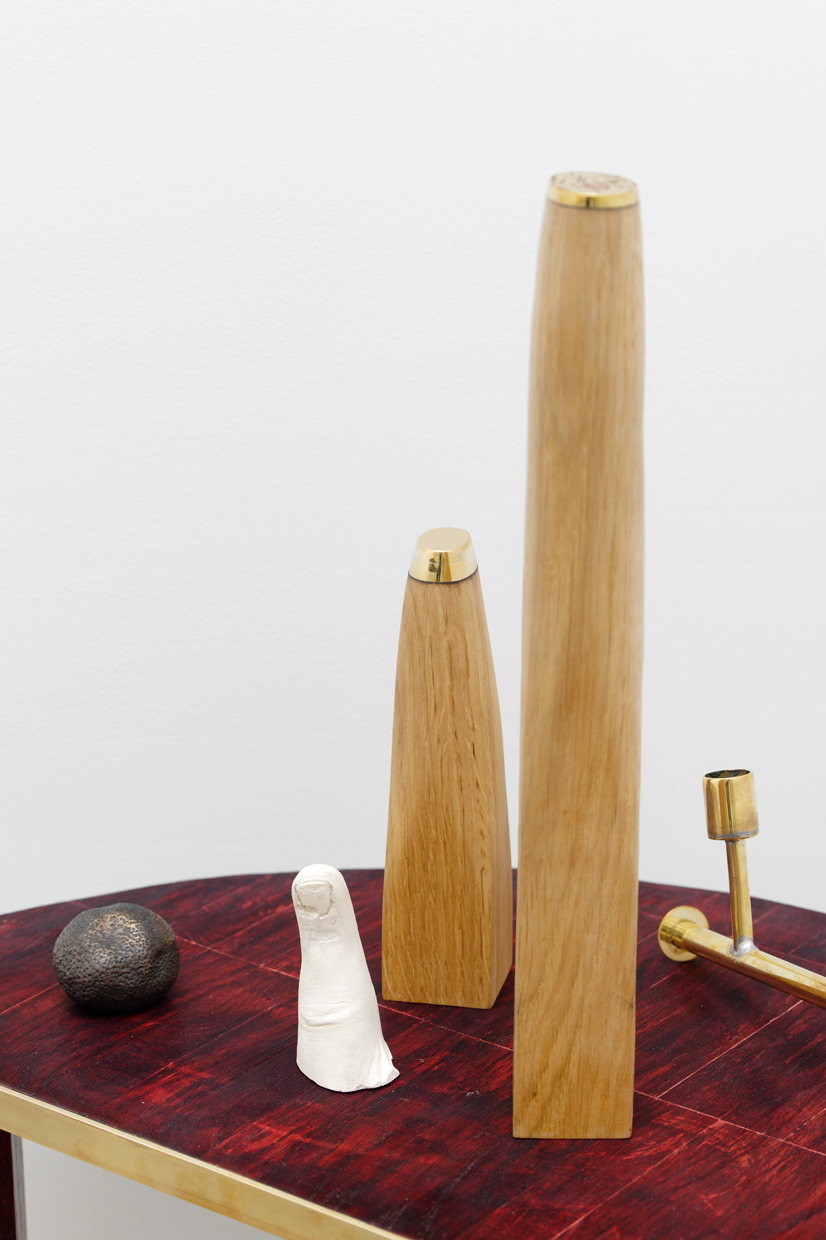
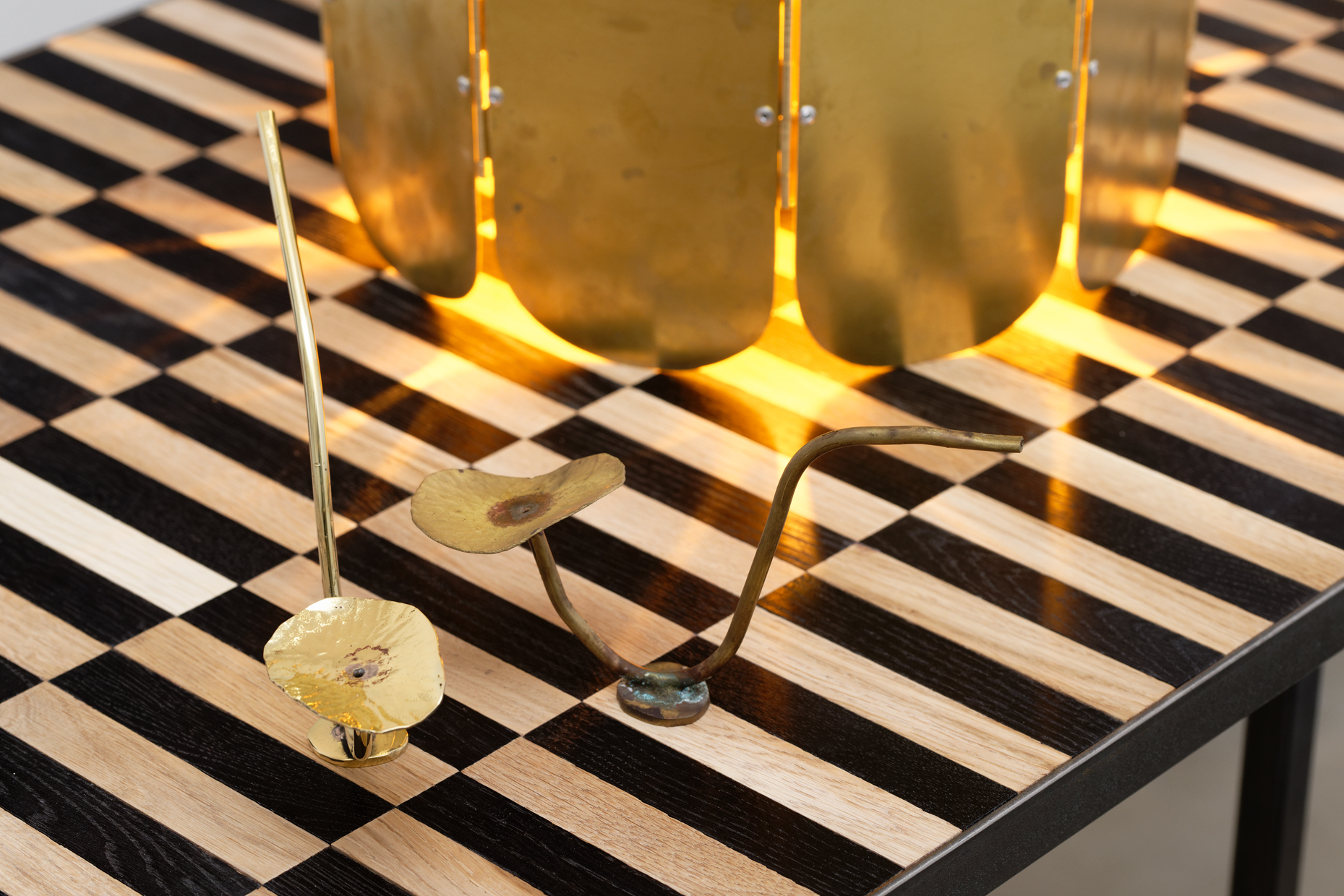
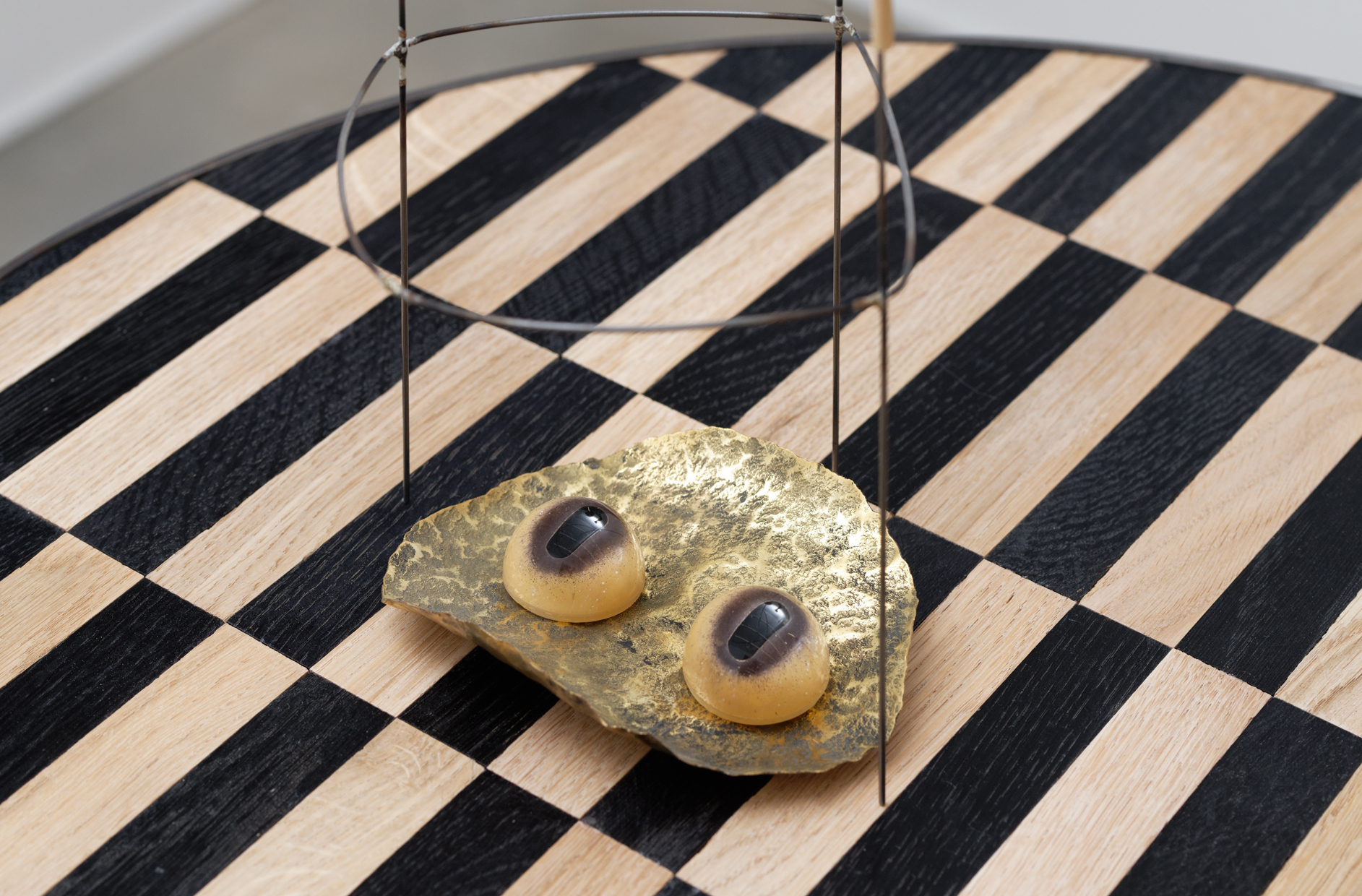
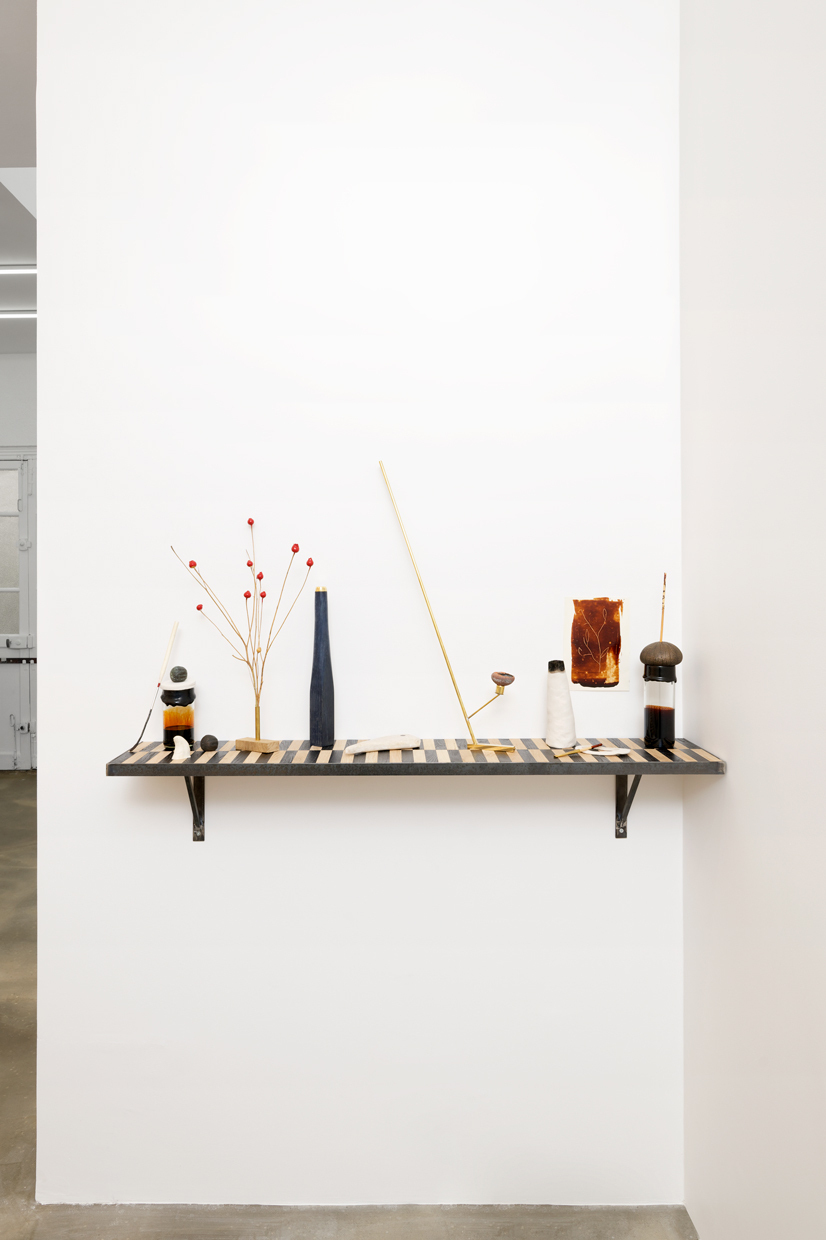
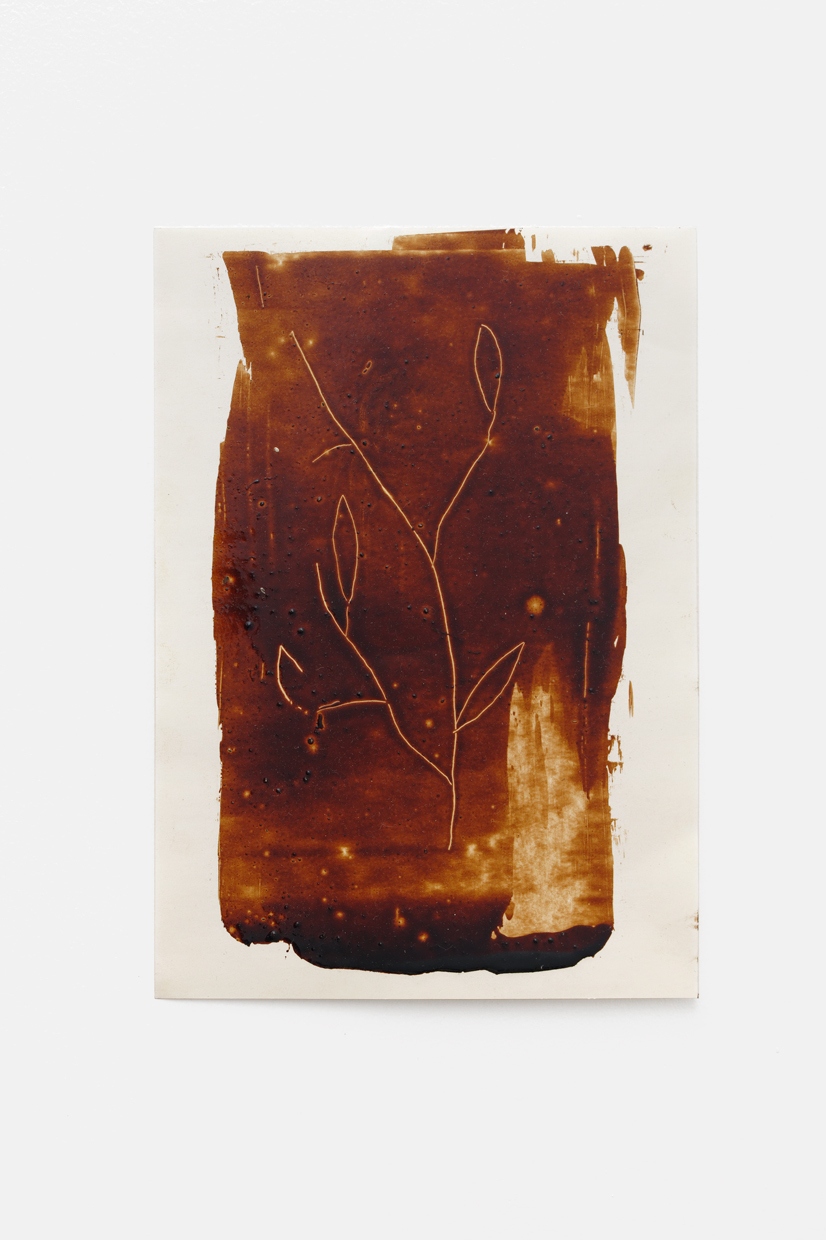
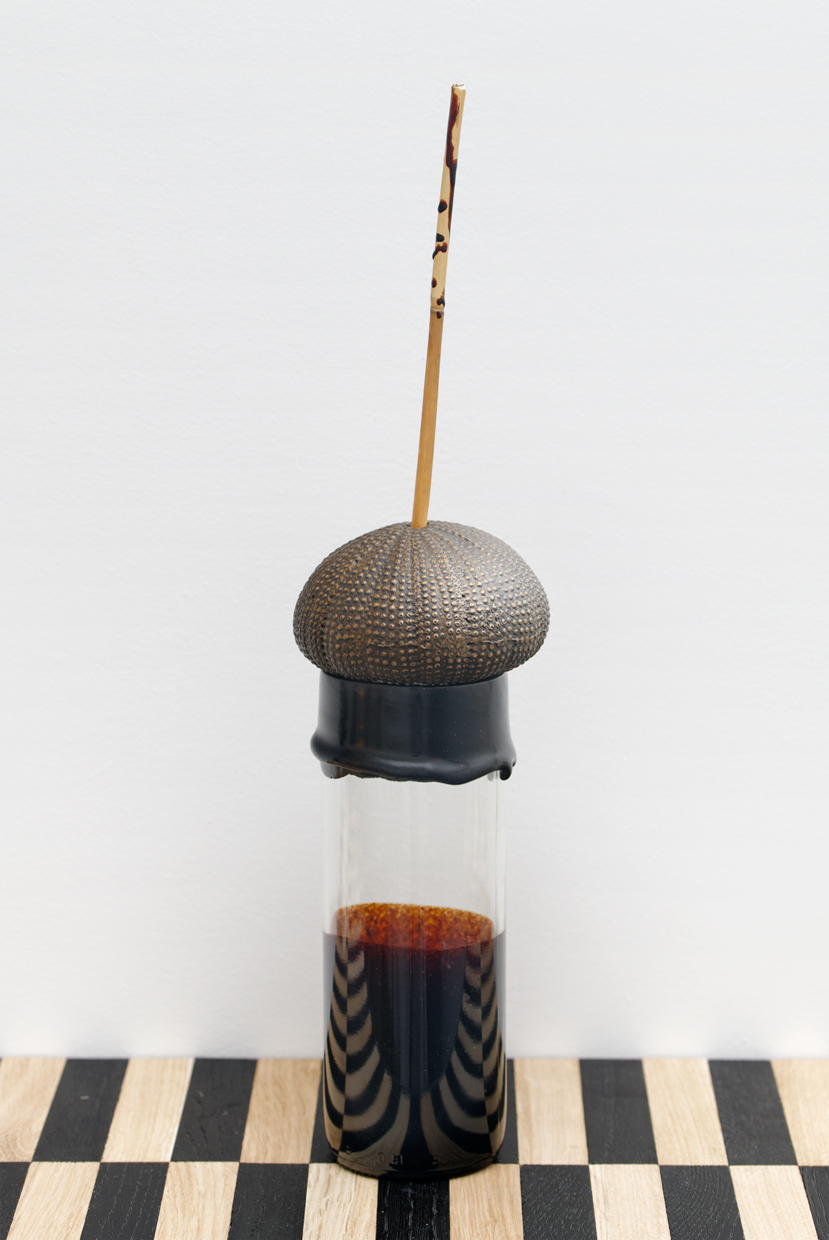
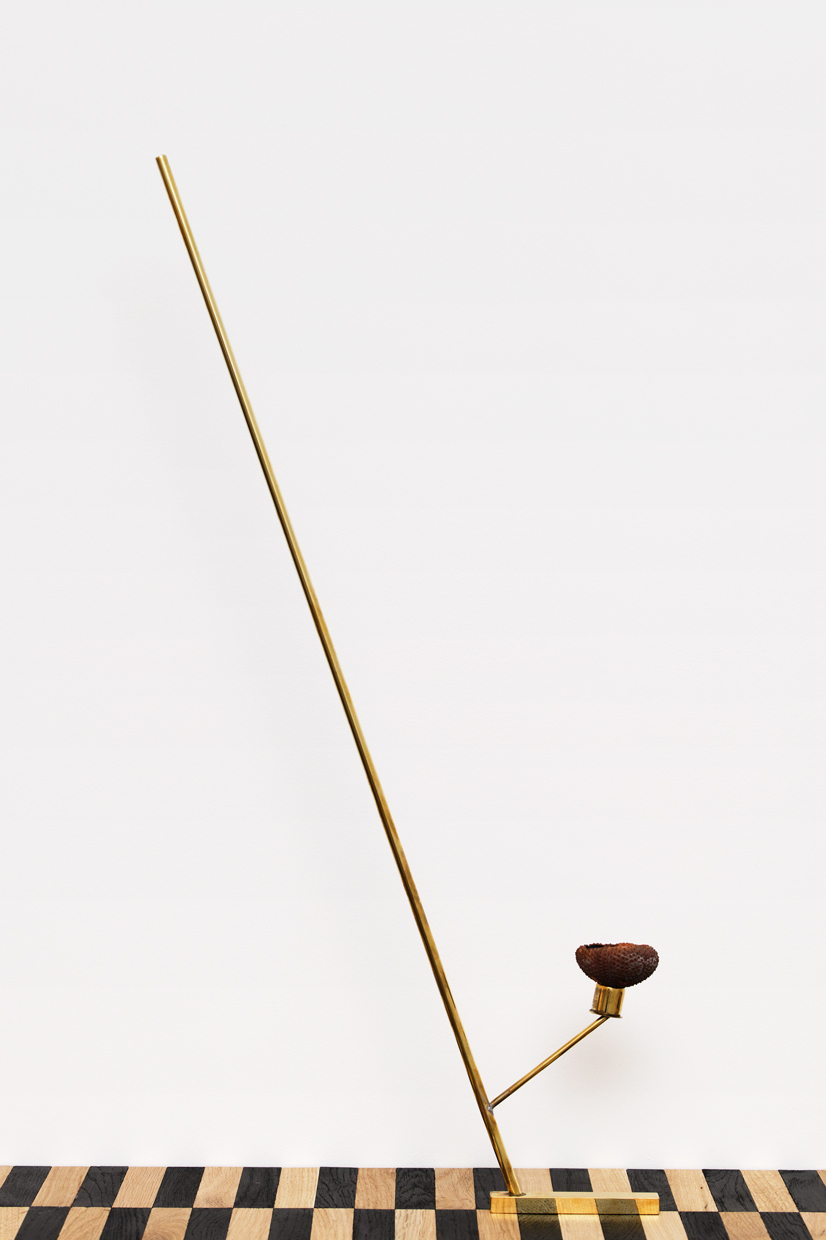
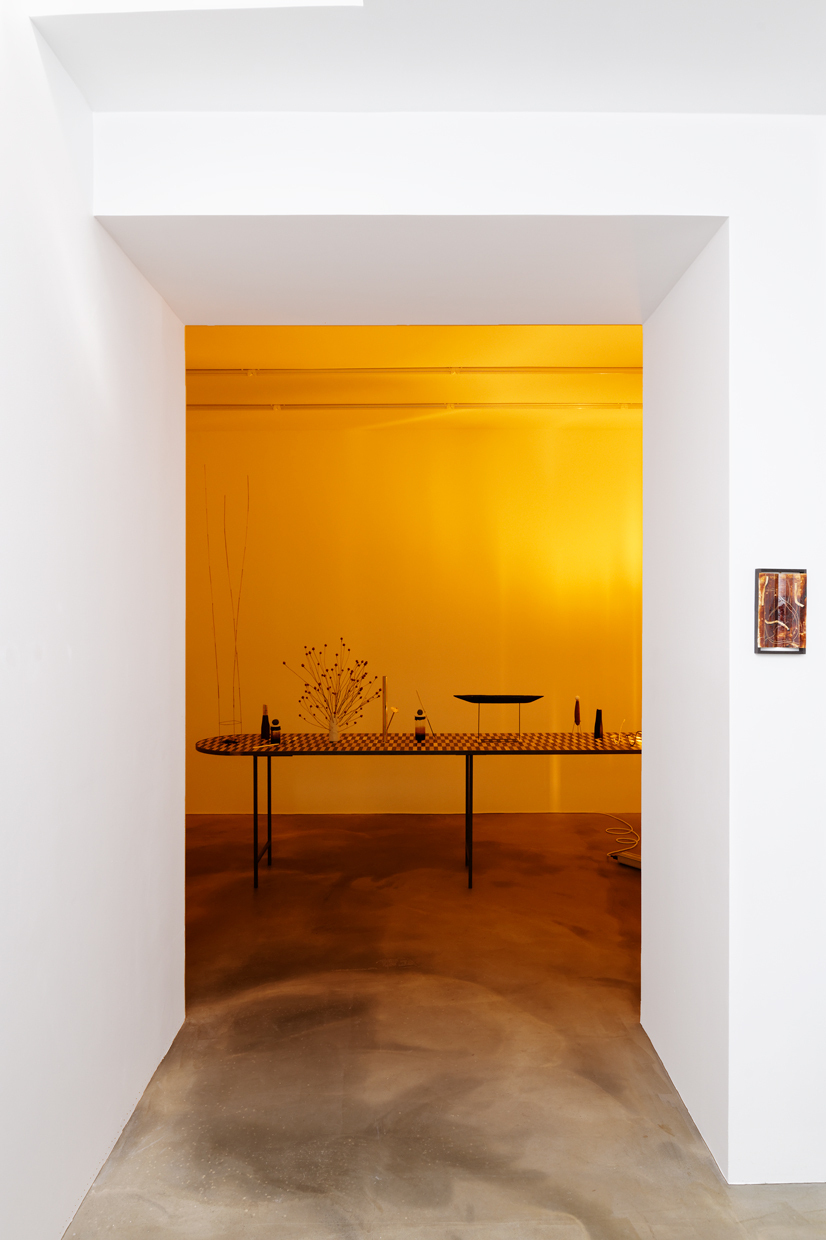
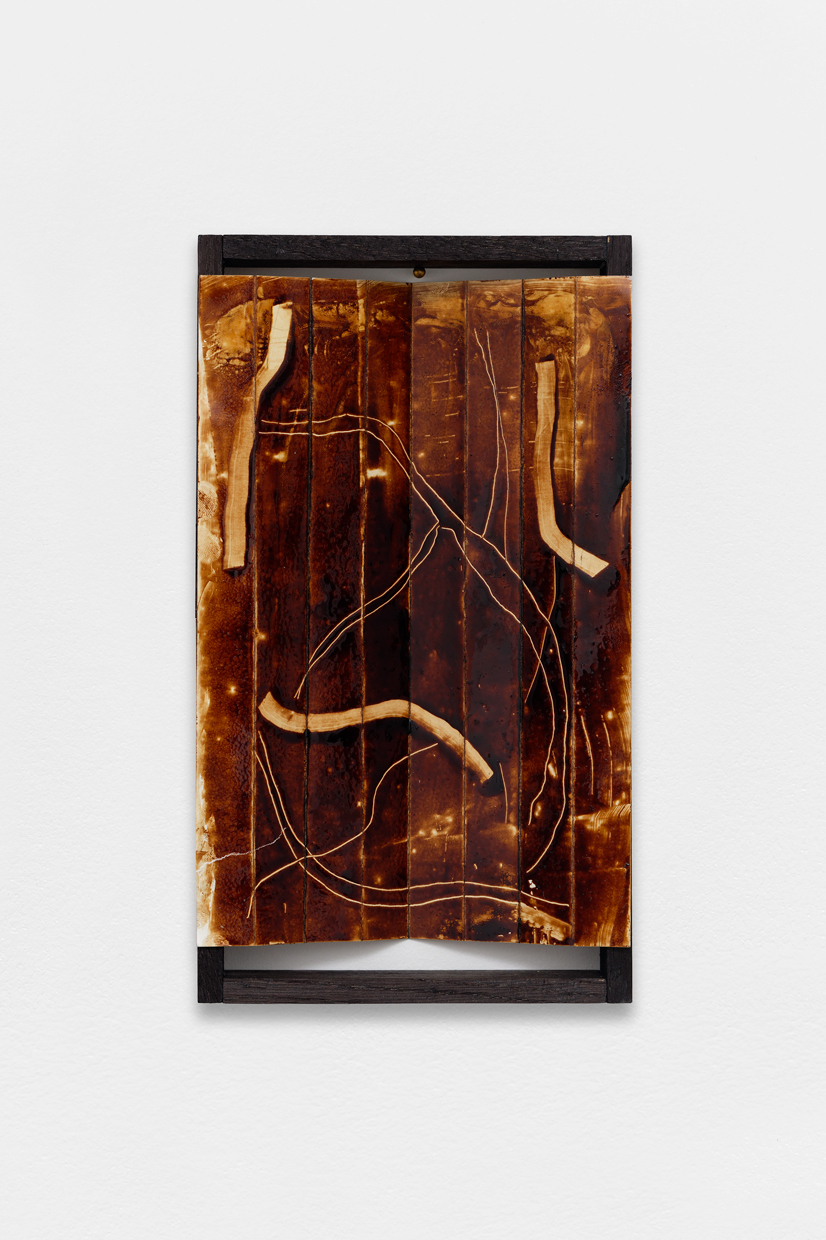
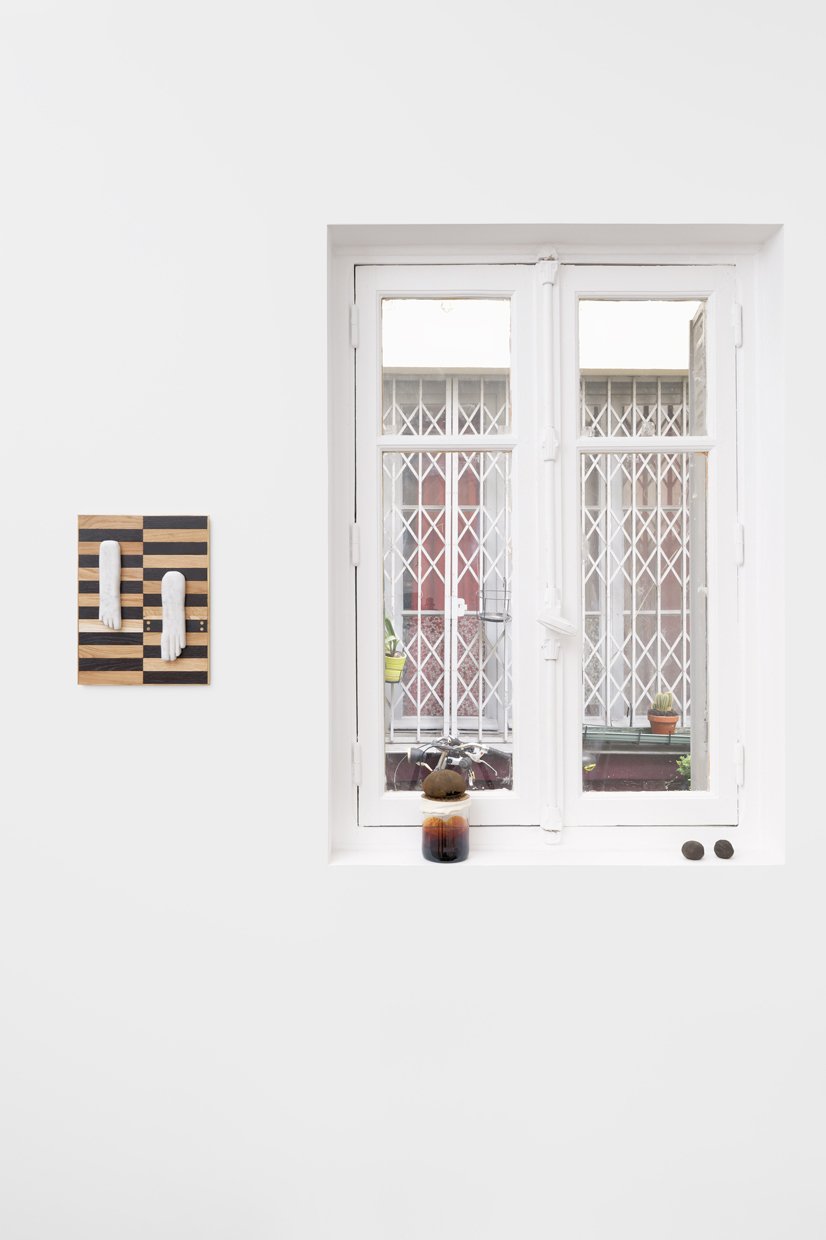
Location
Sans titre (2016)Date
05.06 –24.07.2020Curator
Eloi BoucherPhotography
Aurélien MoleText
Martin Belou envisions his work as a space in itself; he uses the term "object-world". The “Foyer” presented at Sans titre (2016) - produced specially for the gallery space as part of his second solo exhibition in France - acts as the annex to an environment conceived several months ago for the Palais de Tokyo (Paris, FR) in the exhibition Futur, ancien, fugitif (2019), or, more directly, to that which he produced in Objects, Love and Patterns (2018) at CIAP Kunstverein (Hasselt, BE). With each exhibition, the public is led to discover a new extension, built from an alloy of organic elements and styled or mottled shapes that lie between the field of sculpture and the standard industrial object.
The foyer - or hearth - is the place where the fire is found, but also the hypocentre, the headquarters in a context of family or community. This core is represented physically in the gallery by the lamp surrounded by a brass firewall, like a central point from which the rays emitted by a source of light and heat diverge. The incandescence here comes from a sodium vapor bulb, the same found in street lights and other public lighting - but also, in some specific cases, in indoor plant growing. Almost impossible to look at with the naked eye, this light generates a change in sensory perception. In such a way, it allows the artist to split the space and to visualise the moment of the exhibition in two stages and two states: a sunrise, which gradually becomes the campfire of a dwelling.
Martin Belou plays with the modular character of quotidian elements and of the furniture he fabricates, allowing them to integrate with the physical properties of the event space. Like a construction kit, a monumental set of Kapla, the artist constructs the space of this foyer with the help of a mosaic comprised of pieces of bicolored oak, customarily used in flooring design. The furniture motif leads us to an architectural construction, to the invention of perspective in the history of painting with the checkerboard which geometrizes a space. It usually determines the floor and the edges of a room. Here, the vanishing point is frontal, directed by the crosswise table, arranged like an altar.
Is it the laboratory of an alchemist? A smoking room? A caboose? We ask ourselves the function of this space. Could it be a secret room off to one side, where the inhabitants resume their activities when visitors depart? This last question is to be put in context of the history of the gallery space, formerly home to the Theatre Saint Antoine. It’s pleasing to imagine a small troupe meeting away from the public to play its own fantastical spectacle and make use of certain illicit substances. These are given form by the pipes and the bongs, but also by the bottles and glass recipients which contain and diffuse pine tar - a viscous substance generally used as a bandage to repair boats or the trunks of a tree. This vegetal pitch evokes the pronounced aroma of turpentine; it infuses the space. This strong odor that ship workers breathe gave rise to the expression “to be in the coal-tar,” to denote to a half-awake state. The term “coal-tar” refers to the tar obtained by the distillation of coal; at a too-strong dose, the body and the mind react as if plunged into the pasty, gluey liquid. Creating emanations for each exhibition is characteristic of Martin Belou’s work. These effluvia link the work within a same body.
They also participate in the evolving character of the environment, modifying it with tiny disturbances and invisible growths related to the organic materials that the artist allows to spread. The weather, the light, but also the movement of visitors have an impact on the living forms. The proximity, the contact of the works upon the public, sometimes adds a therapeutic character to the ambience designed by Martin Belou. The brass utensils and the wooden and raw porcelain recipients belong to the realm of medical instruments or ancient pharmaceutical remedies. Inhaling from the cauldron relieves and relaxes a feverish mind. The artist chooses to allow the revelation of a mutation of certain resources and recipes that he elaborates from an infusion of plants or of fermenting grains and mushrooms. The weather of the foyer creates a phenomenon of erosion, in which certain topography transforms. From this, our perception is led to move itself between the birth and the death of the exhibition.
Martin Belou guides the visitor in a mysterious procession punctuated with imaginary tales and stories linked to the space, which germinate along the journey.
« Floating gently onward, but with a velocity slight augmented, the voyager, after many short turns, finds his progress apparently barred by a gigantic gate or rather door of burnished gold, elaborately carved and fretted, and reflecting the direct rays of the now fast-sinking sun with an effulgence that seems to wreathe the whole surrounding forest in flames. »
text by Eloi Boucher
Martin Belou was born in 1986 in L’Union. He lives and works between Marseille and Brussels. He recently participated in residency programs at Triangle in Marseille, Aguas Del Dià in Mexico, EUROPALIA in Indonesia and the CAC Parc Saint-Léger in Pougues-les-Eaux. Martin Belou graduated in 2009 from the École Nationale Supérieure d’Art of Clermont Métropole.
His work has been presented in solo exhibitions at La Tôlerie in Clermont-Ferrand (2019), at Bastide Projects in Marseille (2019), at CIAP Kunstverein in Hasselt (2018) and at Levy-Delval in Brussels (2017). Martin Belou has participated in numerous group exhibitions, such as this year’s 'Futur, ancien, fugitif - Une scène française' at the Palais de Tokyo (2019), BOZAR in Brussels in the exhibition 'Natural Capital (Model Alam)' (2017), at Confort Moderne in Poitiers in 'Feed me with your kiss' (2017), at the art center of Villa Arson in Nice in 'RUN RUN RUN' (2016), at Deborah Bowmann in Brussels in 'Les fausses dents du prince ' (2016), and also in New York at Johannes Vogt in the exhibition 'Friendly Faces' (2015).
In 2020, Martin Belou will be the subject of solo shows at Kunsthalle Gent in Belgium as well as at Bernier Eliades gallery in Brussels.
Eloi Boucher